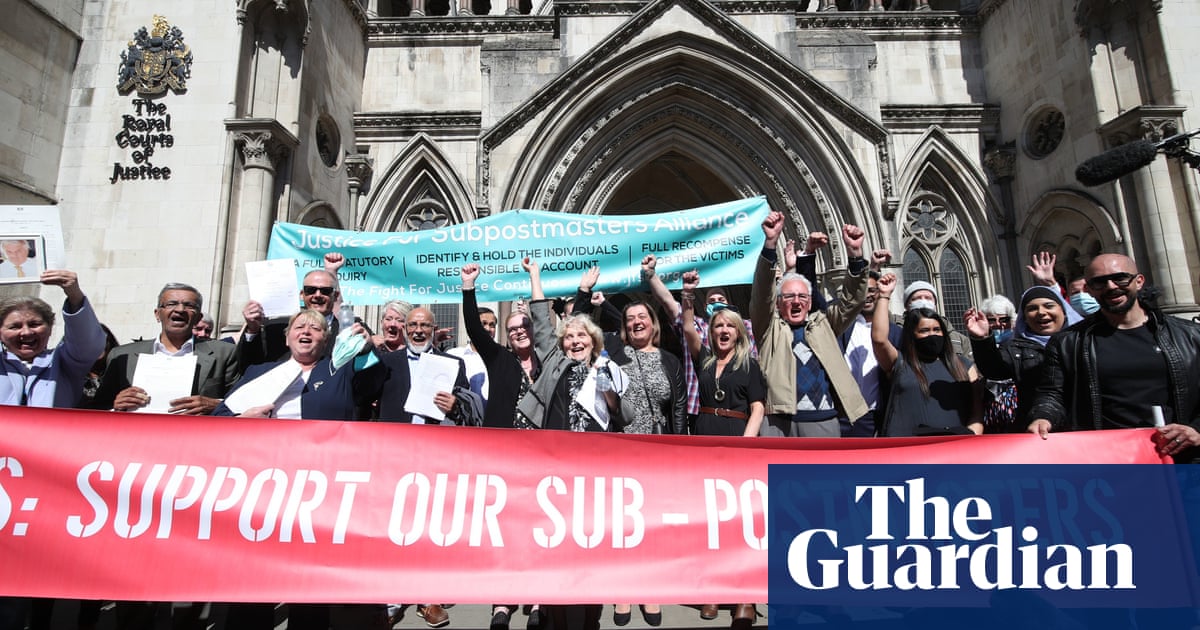
ete Pentecost, who used to hand out the free City AM newspaper to commuters at Bank station in London’s Square Mile, found himself placed on furlough when the first coronavirus lockdown was declared a year ago. It got worse: after three months, he lost his job and eventually applied for universal credit, which took seven weeks to arrive.
“We thought we were going to go back in September, but they’ve taken all the racks away; City AM is just online now,” said Pentecost, who had done the job through an agency for six and a half years. “I enjoyed the job, even when it was raining.”
Like others in the area who relied on passing trade from City workers – from grab-and-go sandwich shop owners to barbers, tailors and dry cleaners – the 64-year-old needed help, urgently.
Kim Gray, the head of diversity and inclusion at NTT Data, a subsidiary of the Japanese telecoms group NTT, knew Pentecost from her daily journey to her office in the financial district prior to the crisis. “When the pandemic hit, we started working from home,” she said. “It was easy for us, but I thought: I wonder how Pete is?”
She managed to track him down and they had lunch together, where they came up with the idea of a food bank for struggling service workers and their families, and The City Gives Back initiative was born.
This involves NTT Data funding the expansion of a food bank at Christ Church Spitalfields, near Liverpool Street station, that was set up by pastor Brigid Beney at the start of last summer to help local families.
The technology firm wants to scale up the food bank, with a particular focus on helping City hospitality and shop workers. It has asked the City of London Corporation, the local authority, to help identify people in need.
“The City is just empty and we don’t know if it’s going to come back,” said Gray. “We have a duty of care” to those who are struggling, she added.
Volunteers from the church and NTT Data pack food boxes on Wednesdays. Every Thursday morning, families collect the boxes filled with staples including rice, pasta, tea, cooking oil and cereal, along with fresh fruit and vegetables. Nappies and toiletries are also available.
A McDonald’s worker, who declined to be named, has been relying on the food bank since July to feed her four children, aged five, seven, 16 and 19. “Before the pandemic I worked in McDonald’s customer assistance at Liverpool Street,” she said. “At first my hours were reduced, and then I was furloughed. I’ve been on furlough ever since. We’ve had to cut down on expenses like food for the family.
“The impact [of the pandemic] has been unfair as office workers might not have a family to care for. They earn much more than restaurant or shop owners earn and they are still able to earn money now,” she added.
Another woman, who works in finance, said she was at the food bank because she was the only one who had been able to keep her job and her salary was not enough to support her children, husband, parents and extended family.
One of NTT Data’s clients, the Lloyd’s insurer Ascot Group, has agreed to help fund the food bank in May, and the tech firm is in discussions with three other City-based firms about sponsoring the food bank beyond May. The company has also raised £10,000 from staff and others since launching its fundraising campaign last month.
Workers within the City of London are the highest earners in the country, with an average income of £60,000 in 2017-18, compared with £24,000 across the UK, according to HMRC figures.
Claire Webster, NTT Data’s chief financial officer, said: “What some of the families live off on a weekly basis, £14, is what City workers easily spend on their coffee, breakfast and lunches in a day.”












